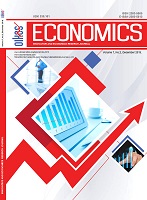Developing a Tool for Quality and Accreditation of a New Generation University in the Digitalized Society: The Case of a Thematic-Technical University
Developing a Tool for Quality and Accreditation of a New Generation University in the Digitalized Society: The Case of a Thematic-Technical University
Author(s): Metin Toprak, Armağan Erdoğan, Yüksel Bayraktar, Deniz Kolat, Mehmet ŞengülSubject(s): Higher Education , State/Government and Education, Social development, Social Informatics, Economic development, ICT Information and Communications Technologies
Published by: Oikos institut-Istraživački centar Bijeljina
Keywords: New generation university; university 4.0; university governance; digital society; mission university;
Summary/Abstract: In Turkey, digitalization of curricula, teachers, course materials, and educational technologies is relatively slower when compared with the ones in economic sectors and state services in general. In this study, we proposed a model for a new generation university in a digitalized society. The Council of Higher Education classifies universities in three categories (mission) to respond to technological and economic developments in the societal life: research, regional-development oriented and thematic universities. At national level, a digital transformation office acts as a coordination and orchestration body among governmental institutions in order to carry and transform public services into digital environment. The private sector naturally has to be digitalized by national and international severe competition. The tool developed in this study based on the model developed by Toprak et al. (2019). That model aims to compensate for coordination gaps in the traditional university hierarchical structure, which is designed as department, faculty board, university board and senate, from administration to governance. Five innovations can be mentioned in terms of organizational and functional configuration of a university model proposed there: (i) profile of graduate and mission of the new generation university in the fields of education, research and community services, (ii) policy development and implementation offices, (iii) university ecosystem consultation and steering committee and other committees and boards, (iv) concept courses and branded courses, (v) coop education and solution partnerships. The Rector’s Office acts as an executive committee to prevent coordination gap in the proposed model. A checklist has been developed for the processing of that model and hence it is made possible to measure the performance of an applied university and degree of compatibility with the model. Thus, the framework and content of the mechanism and tools traditionally used in quality assurance and accreditation will need to be updated in line with this model.
Journal: ECONOMICS-INNOVATIVE AND ECONOMICS RESEARCH JOURNAL
- Issue Year: 7/2019
- Issue No: 2
- Page Range: 69-89
- Page Count: 21
- Language: English

